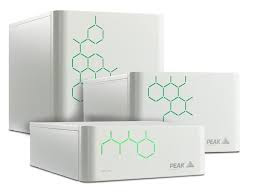Hydrocarbons, CO2, NOx, and H2O are entirely eliminated from the air stream
using zero air producers. This eliminates the requirement for Zero
Air Generator for Gas Chromatography, which is risky for laboratory
activities. Gas chromatography is a popular and very sensitive method of
chemical analysis that becomes volatile and stable under heat.
A catalytic oven that is palladium-filled is used to filter the
hydrocarbons. Hydrocarbon reduction, particularly the reduction of methane and
carbon monoxide, improves baseline stability and lowers background noise
levels, significantly raising detector sensitivity and guaranteeing accurate
analytical results.
Benefits of Zero Air Generator for Gas Chromatography
·
Gas generators on-site lesser carbon footprint. The thousands of dangerous
gas cylinders next to your instrument are replaced by a compact, lightweight gadget
with a push button
·
Using clean energy sources like air and water, on-site gas generation
·
Gas deliveries are permanently eliminated by on-site generators
·
Our solutions include remote diagnostics capabilities that allow us to
service our customers swiftly while minimizing travel and its negative effects
on the environment
·
Our goods use technology that includes energy-saving features
What is the advantage of using the GC Column?
GC
Column is used to separate and analyze volatile chemical compounds. These
compounds do not decompose and are used to separate different compounds. The
equipment used in a GC experiment is called a gas chromatographer.
Here is the advantage of Gas Chromatography
Compared to other chromatography techniques there are clear advantages to
using gas chromatography. These include:
·
Improved analysis speed
A sample's analysis can be finished in a matter of minutes since
operational parameters can be easily modified, even in the middle of an
experiment. Using GC, optimum resolution can be attained quickly.
·
More sample options
Using GC, a broader range of volatile materials can be examined. High
boiling point samples can be studied since the process's temperature can be
controlled.
·
More delicate
Gas chromatography is very sensitive because specialized detectors can
detect target molecules at considerably lower limits than conventional
techniques.
·
Column selection
Columns that can be used in a gas chromatograph come in a variety of sizes,
making them suitable for a variety of applications. Several stationary and
liquid support phases can be used in GC investigations.
·
Reuse of columns
Reusing the columns from gas chromatography tests allows for a significant
reduction in operational costs. They must, however, be stored properly in
accordance with the manufacturer's recommendations.
·
Result and record storage
The results have a limited shelf life unless they are digitalized since the
solid plates can deteriorate over time. Nonetheless, the data generated by the
GC equipment's software can be archived indefinitely.
Why Gas Chromatography?
Gas Chromatography has high sensitivity, resolution, and separation capacity to separate a
wide range of volatile compounds. To determine the mass-to-charge ratio of ions
it is upgraded to a mass spectrometer. It includes a range of injectors and
detectors that can be applied for a number of different medical and other
purposes. Faster than other chromatographic methods, gas chromatography can
analyze a sample. Several types of GC columns are offered in a wide range of
diameters and lengths depending on the needs of the molecule. Gas
chromatography is straightforward, and automated, and enables quick data
processing with quite good precision, accuracy, and reproducibility.
Conclusion
Compared to more conventional methods like thin-layer chromatography, gas
chromatography has a number of advantages. The approach has a number of
drawbacks, including the fact that it can only be used with volatile and
thermally stable chemicals, which makes organic samples like proteins,
peptides, and drug derivatives inappropriate candidates. The analysis of these
kinds of substances is better suited to other techniques, like high-performance
liquid chromatography.

Comments
Post a Comment